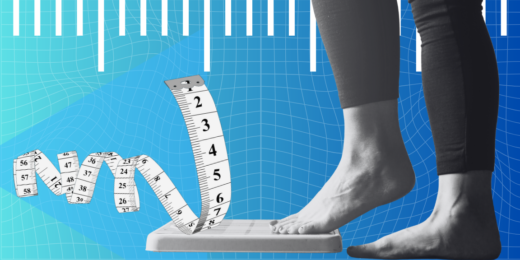Some researchers and clinicians are questioning the value of the body mass index, which estimates a person’s body composition. But do better alternatives exist?
Author: Sarah C. P. Williams
The new tech that could improve care for Parkinson’s patients
Technological advancements allow diabetes patients to monitor their glucose levels remotely. Stanford Medicine researchers are refining similar tools for Parkinson’s patients and the providers they don’t see often enough.
Is your asthma inhaler bad for the environment?
A team of physician-scientists calculated how much greenhouse gas is being emitted by inhalers prescribed for asthma and chronic obstructive pulmonary disease.
What’s the deal with PFAS, aka ‘forever chemicals’?
The so-called ‘forever chemicals’ can stick around in the environment — and in our bodies. Scientists agree there is cause for concern. So what should we be doing to mitigate our health risks?
Imagining virtual reality as a simple tool to treat depression
Some of the 17 million Americans afflicted with major depressive disorder each year may soon receive a surprising new prescription from their clinician: Have fun on a virtual reality device.
As seasons change, so does the guidance around antibiotics: Here’s what you need to know now
Clinical fellow Alex Zimmet, MD, a member of Stanford Medicine’s antimicrobial stewardship team, discusses why antibiotic overuse is a problem and how you can help combat it.
Depression: Early warning sign or risk factor for dementia?
Stanford Medicine researchers showed that risk of dementia increases for people previously diagnosed with depression.
How an ultra-sensitive on-off switch helps axolotls regrow limbs
Stanford Medicine researchers discover an "on-off" switch that powers tissue regeneration in axolotls, a type of salamander.









